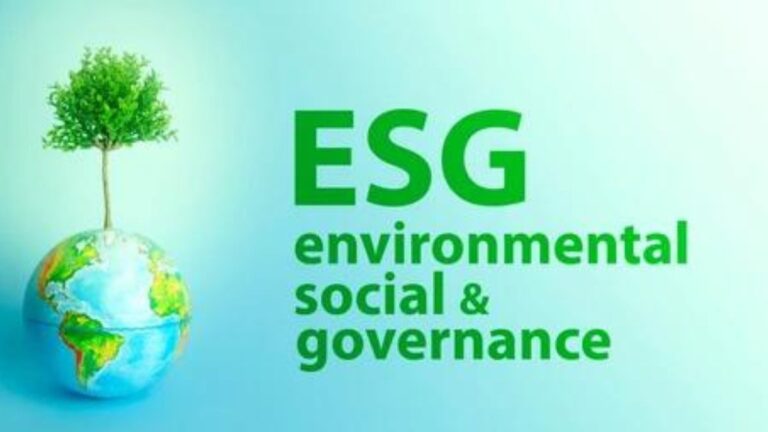Environmental, Social, and Governance (ESG) criteria have become pivotal in shaping how businesses and organizations operate in today’s global economy. ESG refers to a set of standards used by investors and stakeholders to evaluate a company’s commitment to sustainable and ethical practices. This triad focuses on environmental responsibility, social equity, and governance integrity, providing a comprehensive framework for assessing corporate impact and performance.
Environmental Criteria
The environmental component of ESG concerns a company’s impact on the natural world. This includes practices related to energy consumption, waste management, resource depletion, and pollution. Companies are evaluated on their efforts to reduce carbon emissions, manage waste responsibly, and use resources sustainably. For instance, a business with a strong environmental focus might invest in renewable energy sources, implement recycling programs, or develop eco-friendly products.
Social Criteria
Social criteria assess how a company manages relationships with its employees, suppliers, customers, and the communities in which it operates. This aspect covers labour practices, human rights, diversity and inclusion, and community engagement. A company’s commitment to fair labour practices, equal employment opportunities, and efforts to positively impact the local community are key considerations. For example, companies that promote gender equality, provide safe working conditions, and support local charities align well with social ESG criteria.
Governance Criteria
Governance pertains to the systems and processes in place for managing a company. This includes leadership structure, executive compensation, shareholder rights, and transparency in financial reporting. Strong governance is marked by ethical business practices, robust internal controls, and clear accountability mechanisms. Companies demonstrating good governance have transparent reporting practices, well-defined roles and responsibilities, and active boards that ensure compliance with regulations.
ESG Courses: Bridging Knowledge and Practice
With the increasing emphasis on ESG factors, education and training in this field have gained prominence. ESG courses are designed to equip individuals and organizations with the knowledge and skills needed to integrate ESG considerations into their operations and decision-making processes. The ESG course and Details in India often cover a range of topics, including ESG reporting standards, risk management, and the development of sustainability strategies.
Types of ESG Courses
- Certifications, Diplomas & Online Courses: With the rise of digital learning platforms, one emerging institute is Zell Education which provides an ESG course. Their course provides in-depth knowledge about ESG, and the related ongoing trends, the duration of this course is 6 months. Zell Education’s ESG course covers introductory sessions to more advanced modules. Online courses are beneficial for their flexibility and accessibility, allowing individuals to learn at their own pace. Many institutions offer certifications and diplomas in ESG. These programs typically provide a comprehensive overview of ESG principles and practices. They may be aimed at professionals seeking to specialize in ESG roles or organizations looking to upskill their teams. Examples include certifications from professional bodies like the CFA Institute called Certification in ESG investing. As for Zell Education, they provide various courses and resources on ESG investing, but they do not directly enrol students for the CFA Institute’s Certificate in ESG Investing. However, Zell Education’s courses can be a valuable supplement to your preparation for the CFA Institute’s certification.
- Workshops and Seminars: Short-term workshops and seminars are often conducted by industry experts and organizations. These events offer focused training on specific aspects of ESG, such as sustainable finance or ESG reporting frameworks. They are not as compatible as the online courses as they only provide a glimpse about the ESG, but don’t provide you with appropriate exposure and certification.
Rise in ESG Education in India
India has seen a growing interest in ESG as both businesses and regulatory bodies recognize its importance. The Indian government and various institutions have started to emphasize What ESG is all about, its principles, and ethical business practices.
- Government Initiatives: The Indian government has taken steps to promote ESG through regulatory frameworks and guidelines. For example, the Securities and Exchange Board of India (SEBI) has mandated the inclusion of ESG disclosures in annual reports for listed companies. This regulatory push is creating a demand for professionals skilled in ESG practices.
- Online Learning Platforms: As stated above Zell Education offers ESG-related courses accessible to Indian professionals. Zell provides courses and specialized programs, making ESG education more accessible across the country.
- Corporate Training: Many companies in India are investing in ESG training for their existing employees. This includes partnering with consultants and training providers to develop tailored programs that address specific ESG challenges and opportunities relevant to their industry. So, if you are planning to enter the corporate world and get an edge over others, an ESG certification would be quite helpful.
The Need For ESG.
ESG represents a crucial shift in how businesses are evaluated and managed, emphasizing the importance of environmental stewardship, social responsibility, and effective governance. As awareness and regulatory requirements around ESG continue to grow, the demand for skilled professionals in this field is increasing. In India, the rise of ESG-focused education and training reflects a broader global trend, preparing individuals and organizations to navigate and excel in an increasingly sustainability-driven world. Whether through certifications or online courses understanding What is ESG? and implementing ESG principles will be vital for future success in the global market.
